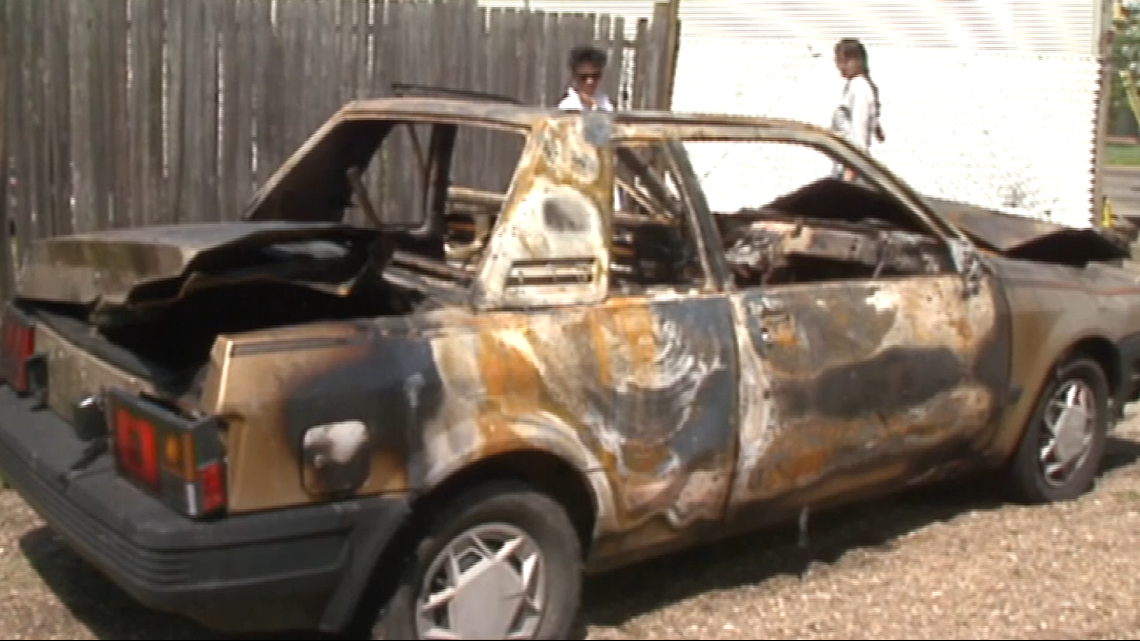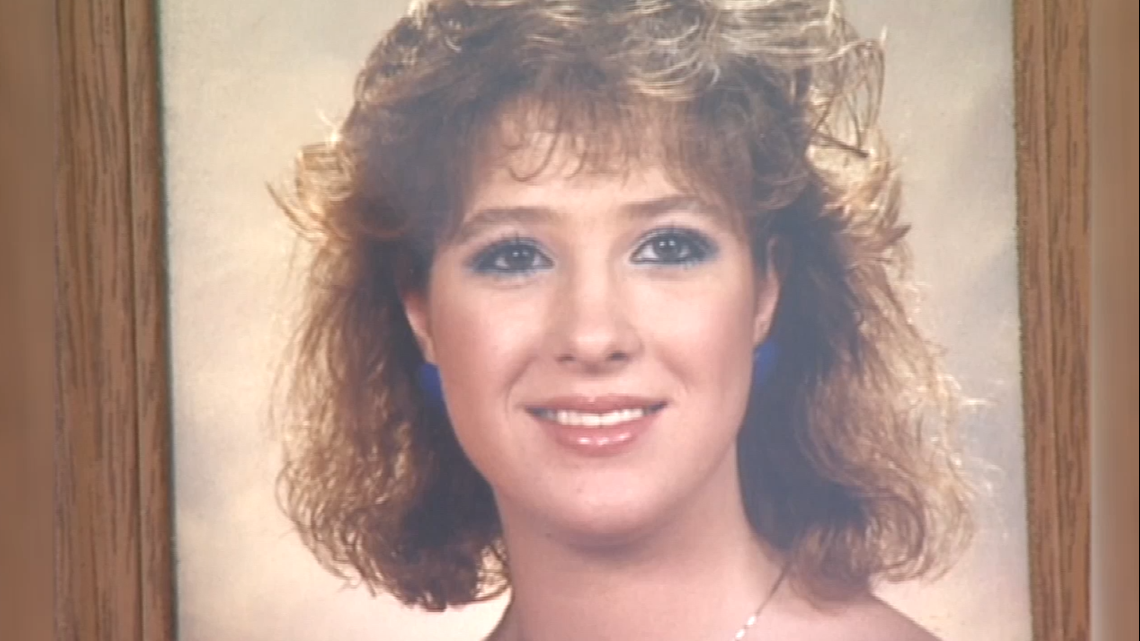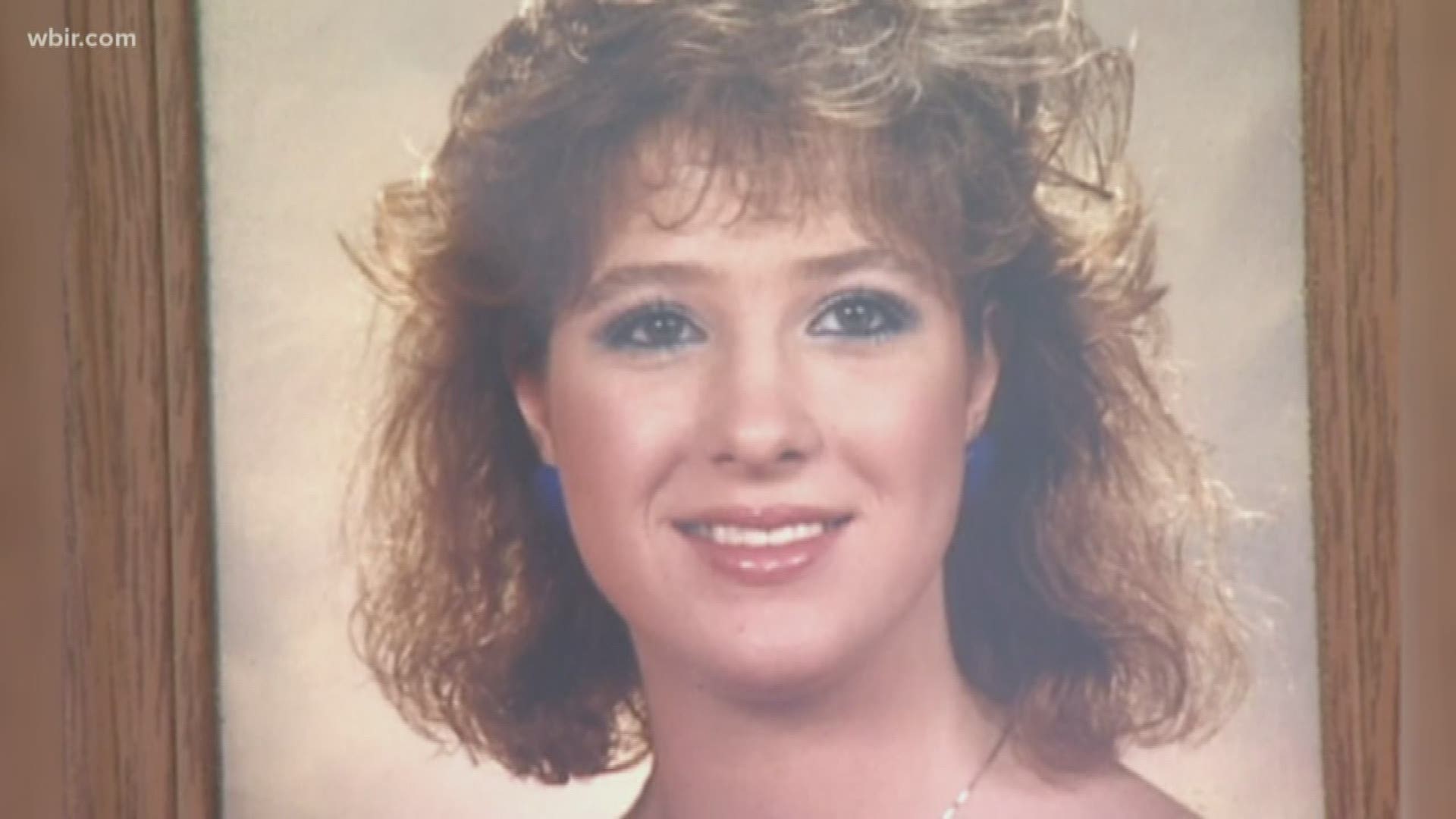On Thursday night, Lee Hall was executed for the murder of his estranged girlfriend back in 1991.
Traci Crozier's family
For 29 years, Traci Crozier's family has been living with her death. In the weeks leading up to Lee Hall's execution, Traci's father Gene Crozier and her sister Staci Wooten spoke to Channel 3 on multiple occasions.
Wooten still remembers what happened to her sister vividly.
"Busted her window out, took the keys, doused her in gasoline, and threw a Molotov cocktail on her that he made up the road," said Wooten. "A neighbor up the street got her out, rolled her, put her out, but her skin was falling off. She went to the hospital."


Crozier suffered burns to 95% of her body and died hours later in the hospital.
An execution date has been set twice in the last 28 years, but both times Hall's execution was delayed.
Gene Crozier has continued to speak up for his daughter.
"Love of her...we've gotta be her voice...there's nobody else," said Crozier.


Crozier's father and sister plan to attend Hall's execution. Wooten says she needs this day to move on.
"Him being executed and me getting to sit there and watch him be executed because I had to watch my sister die," said Wooten.
I contacted Hall's attorneys to get in touch with his family members, and we did not receive a response. It's not clear if members of Hall's family will also witness his execution.
The trial
Court documents describe the relationship between Crozier and Hall. Hall at one point described it as "rocky."
They met in 1984 and started living together in 1986. Court documents show Crozier moved out of the couple's home in March of 1991 and went to live with her grandmother.
Hall continued to call Crozier late at night and at one point told Crozier's uncle if he couldn't have her, no one could.
Roughly a month after Crozier left him, Hall showed up at her grandmother's home and threw a gas bomb into her car.
A neighbor pulled Crozier from her burning car. Documents reveal that she was alert enough to give him her name and phone number, and when he asked her who did it, she said Lee Hall.
A doctor from Erlanger testified that 95% of her body was burned and that she stayed conscious most of her time in the hospital, dying hours after arriving.
During the 1992 trial Hall testified in his own defense and said he initially lied to police about his involvement. He said that night he had been drinking heavily and only intended to burn Crozier's car. But he threw the gas bomb at Crozier after she laughed at him about getting back together.
A jury found him guilty of first-degree premeditated murder and arson.
During the sentencing phase, clinical psychologist Dr. Roger Meyer testified for the defense, saying that Hall was immature, introverted, emotionally unstable, easily influenced and suffered from low self-esteem.
He said that Hall exhibited signs consistent with PTSD, Antisocial Personality Disorder, and Borderline Personality Disorder.
Despite that testimony, a jury found Hall guilty and sentenced him to death.
He had spent his 28 years in prison on death row at Riverbend Maximum Security Institution in Nashville.
Court process
It's taken 28 years to get to the point of execution, and in a final attempt to keep Hall from the electric chair, attorneys presented new evidence to what they call juror bias.
After all appeals had been exhausted and the Governor and Supreme Court declined to intervene, Hall was executed by electrocution.
Hall was originally set to die in 1998, but the execution was delayed. He had accepted his fate and at one point said that he wanted to call off court proceedings and set an execution date, but he changed his mind in a 2001 hearing.
His attorney Don Dawson was one of the people fighting to keep him alive.
"I think in any death case, naturally, that it's necessary to have a check to make sure the constitutional rights of the defendant have been upheld before anyone in Tennessee is executed," said Dawson. "This is the opportunity to do that. To review the case to review it cover to cover, see what was done, give it a chance for the court to review it and to determine or not that this is a constitutional death penalty."
Hall's execution date was set again in 2016, he was given a stay due to legal issues around the chemicals used in lethal injection.
Earlier this year a new date was set, and attorneys once again fought to stop the execution, this time pointing to juror bias.
"He has raised a serious constitutional error, it is a structural error which we believe would require granting a new trial had it been raised earlier," said Kelly Gleason, Hall's attorney.
On November 15th, Hamilton County Circuit Court Judge Don Poole denied the request to delay. The Tennessee Supreme Court also denied an appeal. Hall's legal team sent us a response saying in part:
"The Tennessee Supreme Court can execute Lee Hall on Thursday, denying him the right to present evidence of unconstitutional jury bias to an appellate court. This ruling is a rush to the electric chair."
Wednesday, Governor Bill Lee released a statement saying he would not intervene in this case.
On Thursday, Hall received his final meal: a Philly cheesesteak, two orders of onion rings, a slice of cheesecake and Pepsi.
Witnesses said his final words were: "People can learn forgiveness and love and can make this world a better place."
“We all fought this battle for you, Traci. And today, we won," Staci Crozier Wooten, Traci Crozier's sister, said after the execution. "We've waited 28 years for this."

